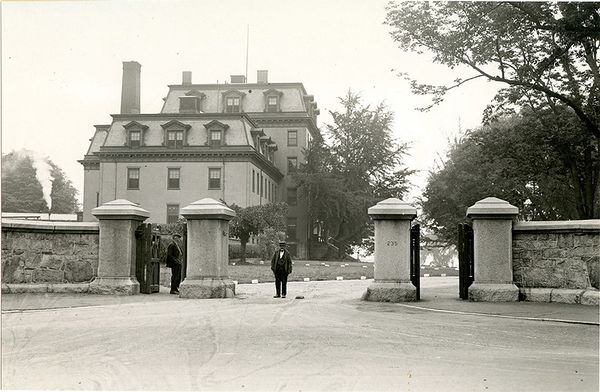Difference between revisions of "Portal:Featured Image Of The Week"
From Asylum Projects
M-Explorer (talk | contribs) |
M-Explorer (talk | contribs) |
||
| (38 intermediate revisions by the same user not shown) | |||
| Line 1: | Line 1: | ||
{{FIformat | {{FIformat | ||
| − | |Image= | + | |Image= bba3295108d83d82ca8c2cfdd837f8eb.jpg |
|Width= 600px | |Width= 600px | ||
| − | |Body= [[ | + | |Body= The [[Dexter Asylum]] served as an institution for the care of the poor, aged and mentally ill of Providence from 1828 to 1957. The Asylum began through a bequest in the will of Ebenezer Knight Dexter (1773-1824), a wealthy citizen who had served on a town committee for poor relief. Dexter's gift to the town, though much needed at the time, later was seen as an anachronism--a walled and isolated "poor farm" in the midst of Providence's residential east side. Beginning in the 1920's, city officials, developers and assorted heirs made several attempts to change the conditions of the will, and in 1957, they finally succeeded. The Dexter Asylum property was sold to Brown University. |
}} | }} | ||
Revision as of 05:39, 10 January 2021
Featured Image Of The Week
The Dexter Asylum served as an institution for the care of the poor, aged and mentally ill of Providence from 1828 to 1957. The Asylum began through a bequest in the will of Ebenezer Knight Dexter (1773-1824), a wealthy citizen who had served on a town committee for poor relief. Dexter's gift to the town, though much needed at the time, later was seen as an anachronism--a walled and isolated "poor farm" in the midst of Providence's residential east side. Beginning in the 1920's, city officials, developers and assorted heirs made several attempts to change the conditions of the will, and in 1957, they finally succeeded. The Dexter Asylum property was sold to Brown University.
